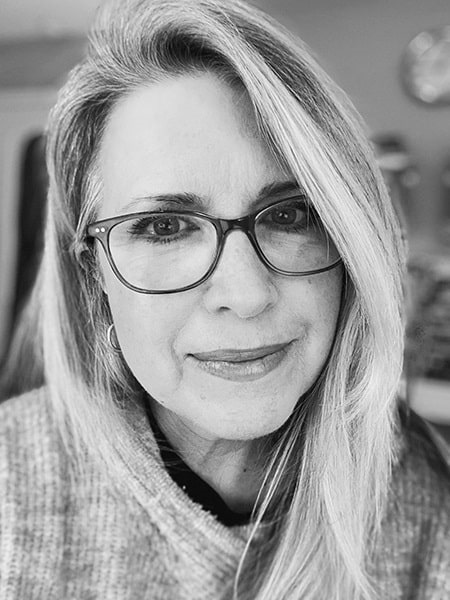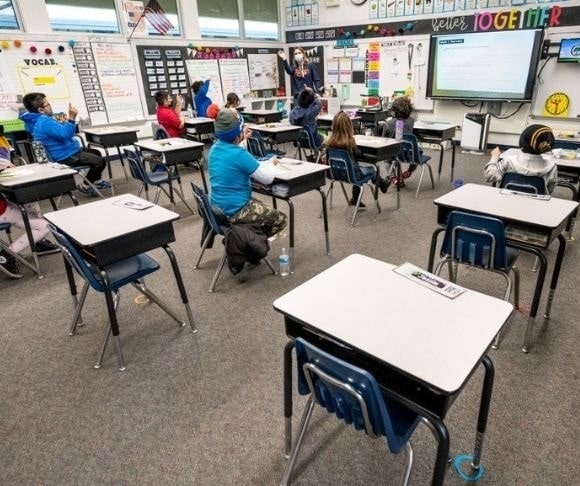Many people are deeply concerned about woke ideology in schools. Former teacher Deborah Fillman is on the ground fighting for your children, and she is here to tell you that it’s worse than you think, but also that you have more options and power than you imagine.
The Reason We Learn
 Fillman has an Ivy League education but decided to become a teacher. What she saw in the classroom horrified her. Many kids were not even taught basic skills. She decided to pull her own children out of school to homeschool them.
Fillman has an Ivy League education but decided to become a teacher. What she saw in the classroom horrified her. Many kids were not even taught basic skills. She decided to pull her own children out of school to homeschool them.
Based on her experience, she started the YouTube channel TheReasonWeLearn, where she advises parents on the grave state of public schooling and how to give their children a proper education. She also has a community on the Dave Rubin’s Locals platform. Liberty Nation talked to her about saving children from woke ideology. Here is that conversation.
The Interview
Liberty Nation: Many politicians say that Critical Race Theory (C.R.T.) in schools is a myth. Why do you think it is there?

Deborah Fillman
Deborah Fillman: C.R.T. itself is not being taught to the students in K12 schools, but the pedagogy, or teaching methods grounded in its tenets, most definitely is. The politicians play games with semantics and hope parents don’t understand the difference between theory and praxis.
The “lessons” are often in the form of curricula cleverly named to keep criticism at bay. Few are eager to speak out against “Culturally Responsive Education,” “Equity Education,” “Ethnic Studies,” “African American Studies,” “Trauma-Informed Practices,” or “Inclusion and Belonging.” This is just sanitized vocabulary used to describe Critical Pedagogy, a neo-Marxist education theory.
LN: You say that there is something even worse than C.R.T. in public schools called Social Emotional Learning (S.E.L.). What’s that?
DF: In its simplest terms, S.E.L. is described as skills children need before they can learn. These include interpersonal and relationship skills, managing emotions and stress, and setting goals. Sounds good, but recently, S.E.L. has shifted its focus to being “anti-racist,” “inclusive,” and “oriented toward social justice.” Rather than helping the individual, S.E.L. aims to alter the child’s mindset away from individual success and towards “the collective good,” which is defined as “equity.”
LN: You call yourself an abolitionist. Can you elaborate?
DF: I think a government monopoly on education is antithetical to the preservation of individual liberty. Couple that with the failure of the system to educate our population to function as productive, responsible adults and the hyper-political nature of the curriculum, and I can’t see any rational reason not to abolish it.
LN: Many people send their kids to private schools. Surely those are safe from woke ideology.
DF: Private schools are some of the most prolific purveyors of “Woke” ideology and have strict speech codes and contracts precluding parents from challenging the curriculum. The recent op-ed in the Wall Street Journal, “Inside the Woke Indoctrination Machine,” exposed the National Association of Independent Schools’ mission to change the nation’s culture through the private schools they accredit.
LN: You’ve had quite a few prominent guests on your YouTube channel, such as Dr. Stephen Hicks, Mary Grabar, C. Bradley Thompson, Phil Magness, and Paul Rossi. Yet, you have less than 10,000 subscribers. Do you think YouTube might be shadow banning you?
DF: It’s certainly possible. There’s been a big push by tech companies to censor or minimize the reach of those speaking out against critical pedagogies and “equity education” in general.
LN: Why do you advocate homeschooling and other alternatives to public schools?
 DF: I am chiefly concerned with preserving individual liberty, so I advocate for education outside this inherently political, self-serving government system.
DF: I am chiefly concerned with preserving individual liberty, so I advocate for education outside this inherently political, self-serving government system.
LN: Do you think these solutions are for everyone?
DF: Yes, I do. It takes more work than simply filling out an enrollment form, but we are also talking about a child’s developing mind and psyche; I’d like people to think about finding alternatives as just parenting, without the government telling you how.
LN: If you could give parents only one piece of education advice, what would it be?
DF: Trust yourself. You were your child’s first teacher. You taught them to talk, walk, feed, and dress themselves, and these are no small feats. You know your child best, and even if you are not necessarily the right person or people to do the instruction, no one is better at deciding who that should be than you.
~ Read more from Caroline Adana.




